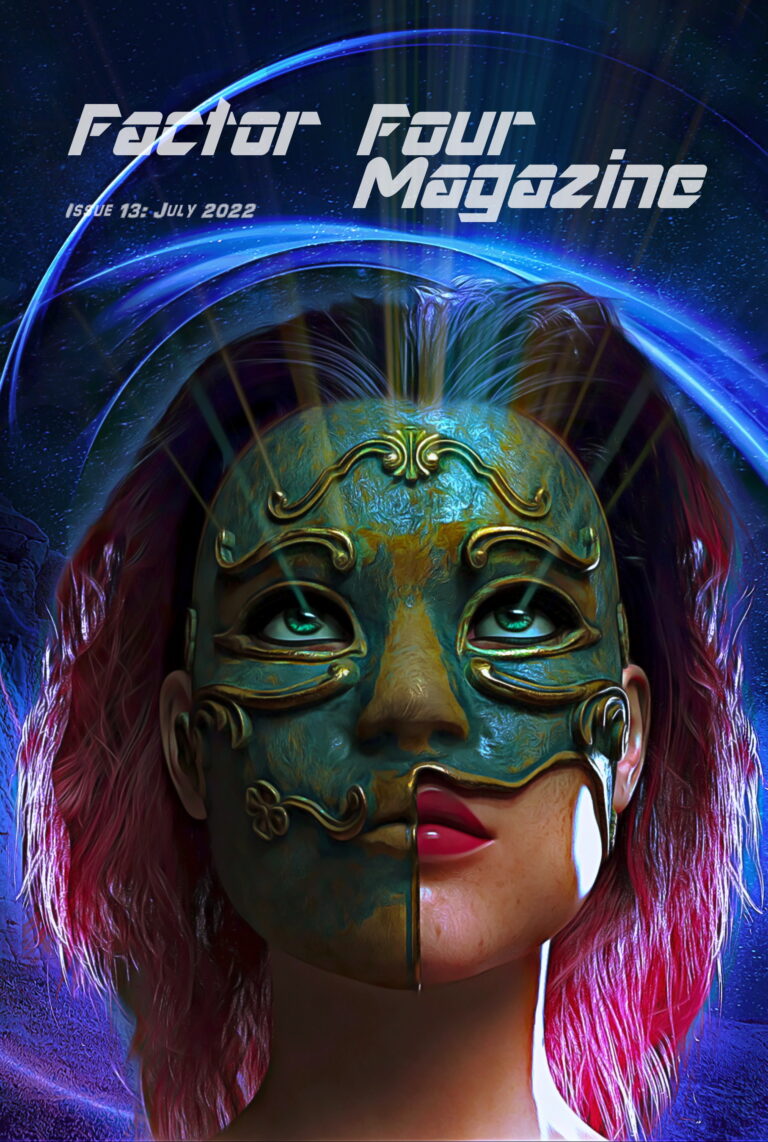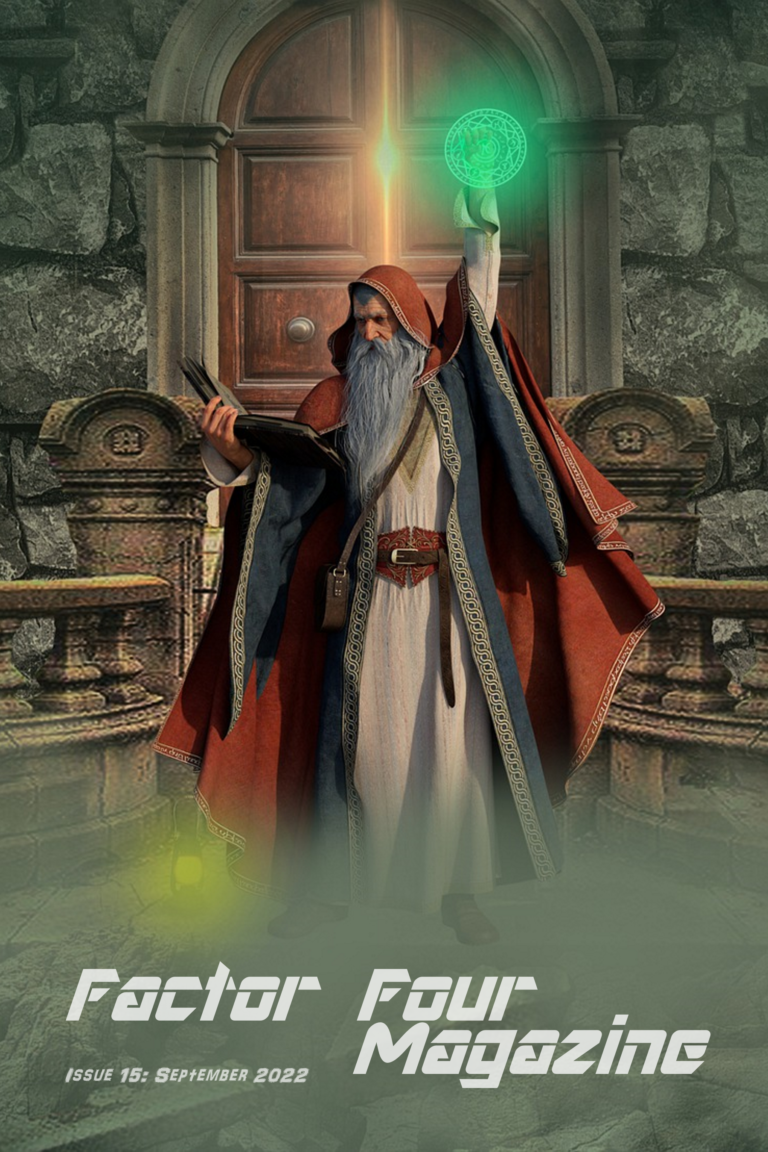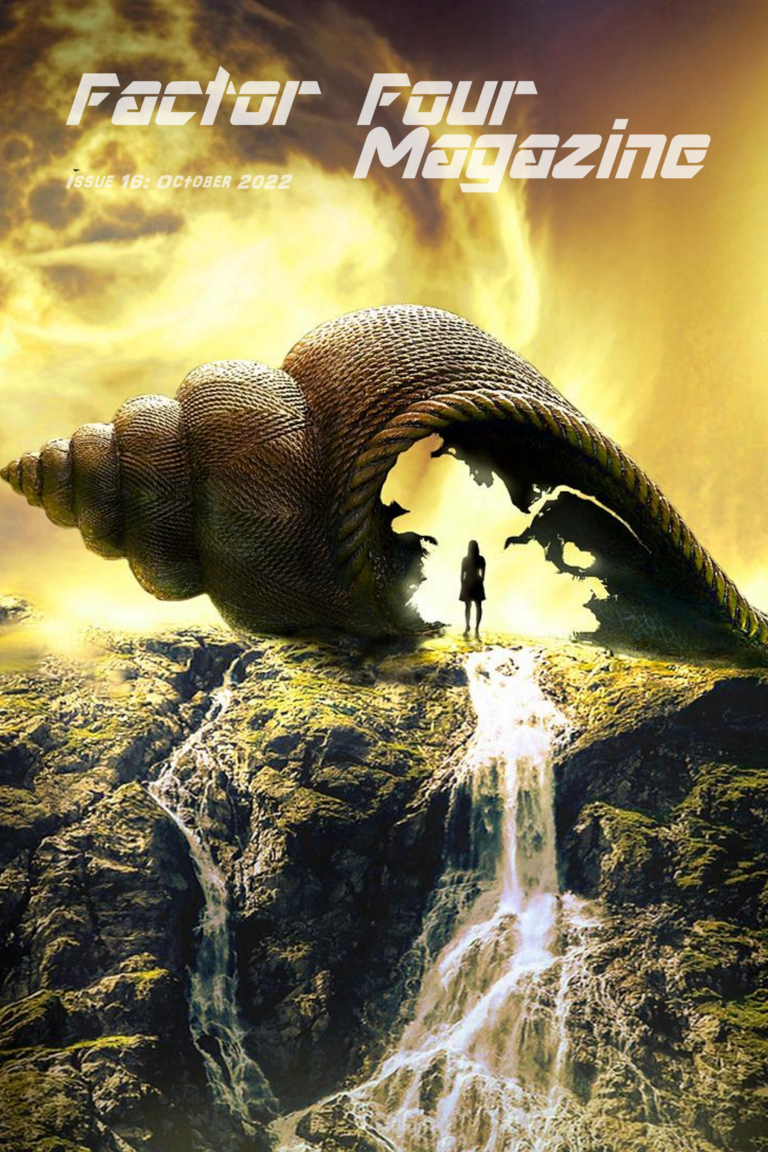MindsEye Lets You Love Again by Allan Dyen-Shapiro

The first time Radovan mainlines MindsEyeTM, the dream-memory transports him three decades back in time to an afternoon in 2010. Artist’s charcoal clasped between thumb and forefinger, he sketches his thirty-year-old wife Analena’s face—side-swept bangs, dimples, a prominent lower lip—then the denim carrier that holds Beth. Their infant faces forward so she can engage the world. Beth plays with her hands, smiles at Radovan, gurgles, and coos. He draws her last.
The picture would hang above their mantle.
As Radovan opens his eyes, sixty-year-old Analena hovers, breath held. He lifts his head from the pillow, sits up, and kisses her.
His psychologist would approve: she insists that he must forgive himself, rediscover his self-worth. To her question—“Who could be depressed with Analena by his side?”—he has no answer.
Analena’s smile hasn’t changed. She’s rarely unhappy. In their entire marriage, she’s been angry with him only once, and she’s long forgiven him for what he did.
Although she’s chided him gently for cluttering their garage, he’s kept several boxes of his favorite pieces, including the one of Analena holding Beth. Maybe later, he’ll take a peek.
Instead, he strays no further than their master bathroom, passing the day throwing up while invisible needles jab him in the eyes.
The second time, the drug carries Radovan a few years further, to his residency at Miami Children’s Hospital. His English can pass muster, but who knew he’d have to speak Spanish to work in America? Fortunately, Analena, the clinical social worker, a third-generation Cuban immigrant, picked up enough hanging around her grandmother’s Calle Ocho pastry shop that she could communicate with the Guatemalan boy who is Radovan’s patient.
Rat bites ooze pus and smell foul. Radovan can clean the wounds and give the kid penicillin and a tetanus vaccine, but how much good would it do if the child went back to the streets? Are there parents? Where does he sleep?
Analena’s job is to find out. She excels at it.
Intrigued by this talented woman, he asks her to dinner. Midway through a savory black-bean soup, present-day Radovan wakes.
“I heard you talking in your sleep.” Analena thumbs through a scrapbook, a collection of marriage mementos wrapped with a cloth cover she’d hand-sewn. “If the medicine brought you to our first date, it’s working.”
It’s the most positive thing Analena has said about the drug. She failed to dissuade him from the risky treatment. He wouldn’t normally take something experimental, but he detests being an unemotional zombie, unable to return Analena’s love.
“Maybe you were right,” she says. “The pills you’re paid to push certainly haven’t helped you.”
Selling designer antidepressants for a Pharma conglomerate has covered the bills for thirty years. Although he enjoyed interacting with patients, as a doctor, he spent more time fighting insurance companies on their behalf. As a rep, he used to take pride in educating physicians to predict which drug formulation and dosage would prove efficacious with a particular clinical presentation. A beneficial regimen could usually be found, albeit not for him.
The sickness hits. For the next two hours, his ears ring, and he bleeds profusely from his nose. A presence, just out of sight, redolent of rotting meat, berates him in his native tongue.
A literature search the following morning tells Radovan most patients with adverse reactions to MindsEyeTM dropped out of clinical trials. With those who continued, symptoms worsened with repeated exposure. Understanding these papers consumes the day; with each paragraph, he must look up the long-forgotten to even grasp the gist. Ink stipples his notes until doodles crowd out words.
He fears hazarding a third dose, but he must. His Willy-Loman lies no longer carry him through a workday, and he isn’t the husband to Analena he once was. He wants to do better.
He injects himself and closes his eyes.
Radovan relaxes on a lawn chair just inside the white fence around his home. It separates him from the lush, live oak trees lining Old Cutler Boulevard. The sleepy street jams with cars only when Fairchild Gardens holds an event. Otherwise, it’s quiet.
It’s early morning, before the July heat gets oppressive. Six-year-old Beth drags her red wagon across the grass, conversing with the dolls she transports. When she commands them, Beth borrows verbiage from Analena. Radovan struggles to hide his amusement, so as not to appear censorious.
The scene begins to blur, but Radovan resists, refusing to leave this perfect moment.
With a turn of his head toward the open kitchen window, he calls to Analena, who has remained inside, sipping her coffee. “Honey, would you like to eat breakfast outside? It’s beautiful this morning.” While Radovan awaits Analena’s response, a pair of brown pelicans soar through the sky and land on a low branch, which sags from their weight.
“Birds!” Beth abandons her wagon and dashes toward them. Through the hole in the fence Radovan was supposed to fix.
They squawk and flutter wings. Beth chases them into the path of a bright red SUV; brakes screech.
The collision’s dull thud hits like a punch to Radovan’s abdomen. Analena bursts through the door and screams.
Radovan sprints toward Beth, kneels, listens. She isn’t breathing. He phones 9-1-1, begins CPR. Beside them, Analena stands, sobbing.
A siren blares. Analena catches Radovan’s eye when he moves out of the paramedics’ way, and her glare sears. “Goddamn you, Radovan. Why weren’t you paying attention?”
He trembles, unable to respond.
Present-day Radovan wakes, sort of. Analena cries out to him, her voice distorted as if through a tunnel. Bit by bit, his wife, who adores him, who doesn’t blame him, dissolves into slate-gray smoke. An invisible vise grip clamps Radovan’s head and twists; convulsions rip through his chest.
Suddenly, the pain dissipates, and all is silent and white. Beth pulls her wagon into view. Analena smiles and waves. Radovan draws, but this time in pastels, and the canvas is his entire world.




